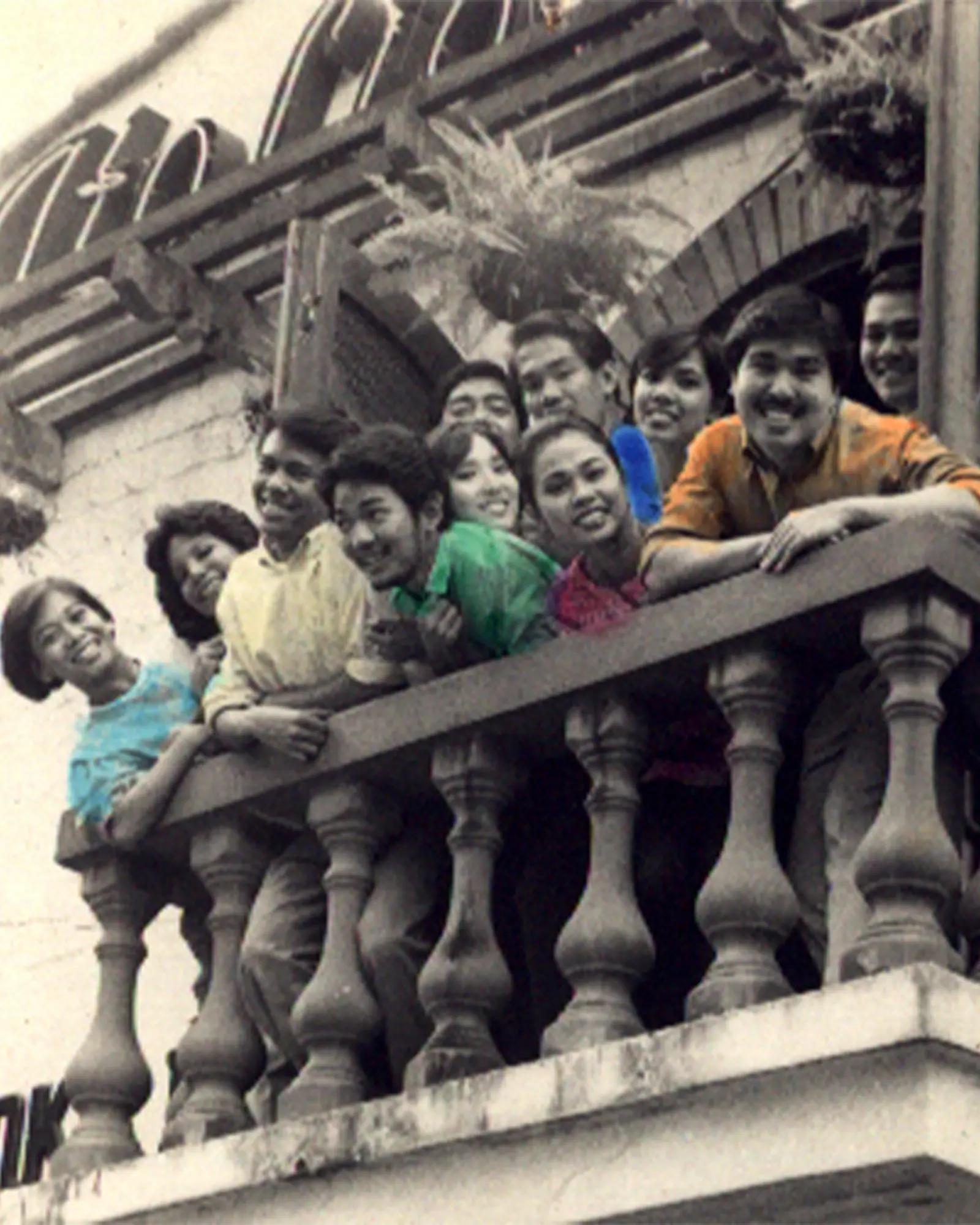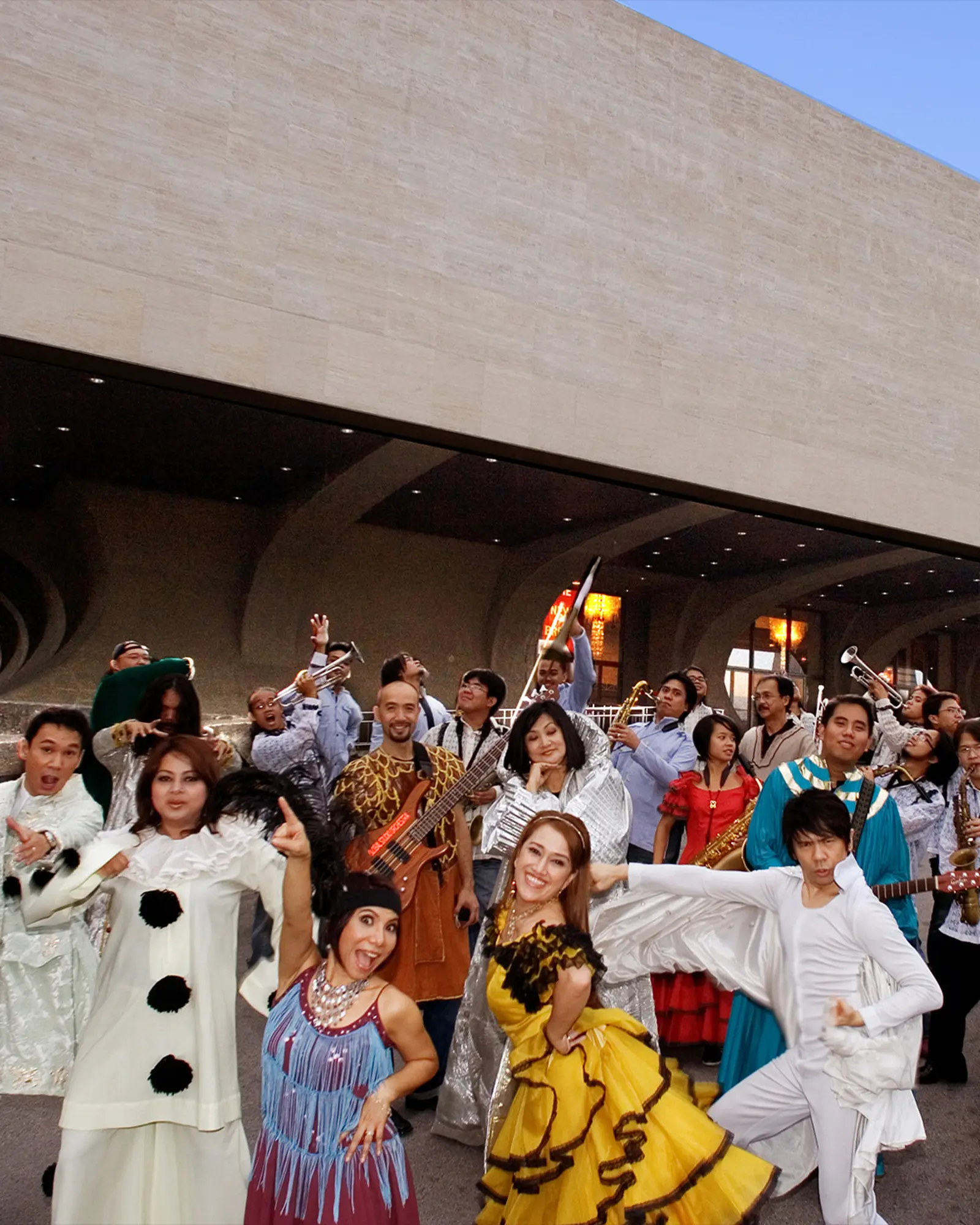Real human voices — raw, unfiltered, mortal — crack, quiver, fail.
Even the greatest singers, like the best athletes, buckle and strain under the weight of advancing mortality. Nudge the air conditioning unit a notch too high, rehearse ten minutes too long, or just, you know, leave your twenties, and the imperfections will show.
The CompanY, the iconic vocal collective who’s now staring down their fourth decade, knows this. In truth, they’re living it and still loving it, warts and all.
“This is the first anniversary show na quartet na lang kami,” Sweet Plantado says, half-laughing, and, we imagine, half-sobbing inside. “Mas maraming workload, but I asked for it,” she says, owning up to her purportedly misplaced bravery, which chiefly involved saying “Yes” and showing up. It’s not rocket science, though: Fewer singers means more parts to learn, which means more harmony-hopping, which means more room for mistakes. But also, more opportunity for magic and discovery.
And that last part is something The CompanY remains hungry for. Moy Ortiz, musical director and de facto professorial soul of the bunch, asserts: “Every time we do an anniversary show, it’s like a showcase. But this time, we also want to show the possibilities.”
In other words, Ortiz says, they’re not content to just “trot out old war horses.” And as much as the group still finds joy galloping to seasoned winners like “Everlasting Love,” they’re also still bold enough to bet on unfamiliar steeds.
Feeling Again
The wager they hold in highest regard, however, is on art and craft.
To that point, the 40th-anniversary show (happening June 14 at Solaire) is poised to be a glorious pastiche of the old, the new, and the seemingly improbable. Progressive OPM, experimental twists, songs pulled out of the “bodega” and scrubbed till they shine. They’re all there.
Arriving at this curious hodgepodge wasn’t a walk in the park either. As Annie Quintos puts it plainly: “It was a challenge to present something old in a new way.” And when you’ve been singing songs longer than the average age of the dudes in BTS, you tend to take stock of things.
Relearning well-worn, well-loved cuts became an exercise in problem-solving. “It’s daunting,” Quintos adds. “I’ve been using all the tools I have to memorize, to remember, to feel again.” And if you think memorizing the passwords to all your socials is hard, try regularly reinhabiting a ballad you’ve been performing since the shoulder pads and hair mousse era.


It’s tempting to frame The CompanY as legacy artists, nestled comfortably in the plush embrace of nostalgia. But they refuse to plop down on that easy chair. As Ortiz puts it, “We don’t just rely on organic talent […] or rest on our laurels. We try to learn new music, new ways of creating music, new genres.”
“Our meat and bones is our craft; it’s not about staying popular or relevant,” he adds.
It’s been said time and again, but considering the journey of The CompanY — whose founding in 1985 (from connections forged at the Ateneo de Manila College Glee Club) and eventual ascent to being OPM mainstays have been well-documented — makes a strong case for relevance being, well, overrated.
Outplay, Outlast
Survival, though? Survival is badass.
Survival is being able to arrange and record with or without vocal charts. Survival is acknowledging how TikTok is both a meme factory and a transitory nestling place for songs. (As a corollary, if “Muntik na Kitang Minahal” hit it big the TikTok way, would it be any less as a work of art?)
Survival is being thrilled (not threatened) by the P-Pop boom, whose best-known practitioners (SB19, BINI) belong to the same continuum, as OJ Mariano says. “At their core, they’re vocal groups.”
All this wide-eyed idealism for good music and artful arrangements is due to the creative stubbornness of four people who refuse to let the human voice go out of style, in spite of a world that embraces autotune and AI as full-fledged items in the arsenal. The CompanY, in essence, still treats every take and every run like a boxing match against mediocrity. “We’ll be in harmony for a phrase,” Mariano says, “but we’ll just agree: ‘Hindi pa ito ‘yon.’ And then we repeat. And repeat. And repeat.”

AI can fake a vibrato. AI can generate a chorus. But AI can’t know the hiccup of a heartbreak that comes when a note almost lands, but eventually… doesn’t.
“Nothing beats the human voice,” Plantado says. Quintos agrees, stressing the physicality — the physiology, even — behind vocal performances. “We physicalize what we want to happen [with a piece].” No app will ever grasp the raw battle between breath and strain before a first chorus is hurled into existence.
The group remains a beautiful contradiction: ageless but not frozen, traditional but decidedly undogmatic, serious but also hell-bent on having fun.
“The fact that [we] survived such a very unforgiving and sometimes cruel industry, and have survived time and trends, I feel that’s a privilege not given to many,” Ortiz smiles.
Read more stories in the May 2025 issue of Rolling Stone Philippines, out now on select newsstands and on Sari-Sari Shopping, or read the e-magazine here.






